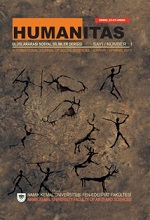1960 AMERİKAN TİYATRO GRUPLARIVE POSTMODERN SAHNE DİLİ
AMERICAN THEATRE GROUPS IN THE 1960’S AND POSTMODERN STAGE LANGUAGE
Author(s): Ahmet BeşeSubject(s): Theatre, Dance, Performing Arts
Published by: Namık Kemal Üniversitesi Fen-Edebiyat Fakültesi
Keywords: American Drama; 1960 Theatre Groups; Postmodern Discourse; Performance
Summary/Abstract: This paper is intended to focus on the early development of postmodern discourse used in contemporary American drama as well as on the diversity of voices that dramatists reflected after the Civil Rights Movement of the 1960s. With the Civil Rights Movement in the 1960s, political tensions across the country reached an intense degree. Theatre practitioners and critics felt the need to redefine their art form in the new context of the diversity of voices on stage. Diverse theatrical groups (Open Theatre, Living Theatre, Performance Group) that emerged in the early 1960s attempted to devote themselves to new voices with new ways of communication arising from verbal and non-verbal gestures and performance in vivid scenes that identified the image of man in a hightechnology culture with his fears and hopes in the currents of global chaos. Most of the prominent plays written after 1960s in the pioneering and experimental theatre groups, reflect the problems of pop and mass cultures, meta-discourse, subjective voices and self-reflexive characters. Thus, the plays produced in the new theatre groups elevate the common sense of ordinary individuals to the centre stage of public discourse as both social critics and innovative political voices. The playwrights, and performance artists despite cultural and personal differences in perspective, such as Sam Shepard, Megan Terry, Maria Irene Fornes, Spalding Gray, Karen Finley, and writers and theatre theorists such as Joseph Chaikin, Richard Schechner have all committed themselves to drama that reflects the voices of diversified social and cultural lives. The degree of their success varies, but they are heavily concerned with global problems in the postmodern world. This critical vision is expressed in the ongoing creation of their texts, historicized and narrativized through postmodernism.
Journal: Humanitas - Uluslararası Sosyal Bilimler Dergisi
- Issue Year: 1/2013
- Issue No: 01
- Page Range: 51-58
- Page Count: 8
- Language: Turkish

